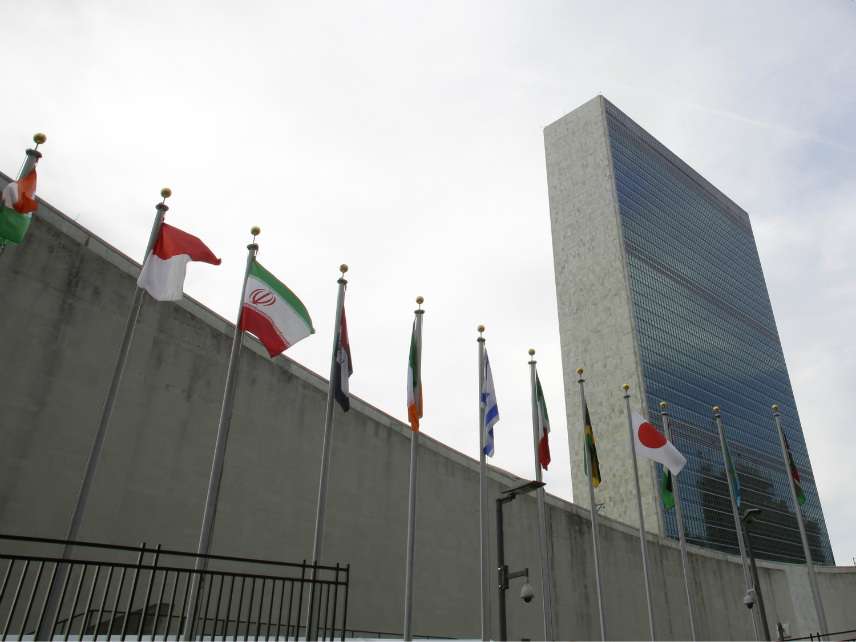No, the U.S. Didn't Just Take a Stand for Executing Gay People
Don't believe the hype about the U.N.'s resolution on the death penalty.

Did the Trump administration just take a stand for executing gay people? No, but I understand if the internet's been giving you that impression.
"United States rejects UN resolution condemning use of death penalty to target LGBTQ people," says the headline at Think Progress. "U.S. votes against U.N. resolution condemning death penalty for LGBT people; is this who we are?" frets Salon. Countless journalists spread the story on Twitter, and several LGBTQ publications repeated it uncritically.
But the resolution wasn't focused exclusively on executing gay people. It came out against executing anyone. Whether or not you favor the death penalty—for the record, I'm very much against it—this wasn't something any country that allows the death penalty would have supported. The Obama administration voted against a similar resolution in December 2016.
The resolution at issue—"The question of the death penalty"—was approved by the United Nations' Human Rights Council on September 29, over the opposition of the United States and 12 other countries.
The first provision of the resolution, and the source for the outrage over the U.S.'s vote, "Urges all States to protect the rights of persons facing the death penalty and other affected persons by complying with their international obligations, including the rights to equality and non-discrimination." It goes on to list a number of specific behaviors for which the use of the death penalty is objectionable, including blasphemy, adultery, and—yes—"same-sex relations."
But then the next provision "Calls upon States that have not yet acceded to or ratified the Second Optional Protocol to the International Covenant on Civil and Political Rights aiming at the abolition of the death penalty to consider doing so." That Second Protocol, as can be gleaned from that description, requires that signatories abolish the death penalty.
Still, ThinkProgress claims that "the resolution notably doesn't call for the end to the death penalty. It simply condemns its usage in a discriminatory fashion." NewNowNext says it "doesn't call for the end to capital punishment altogether, but asks member nations not to use it in a 'discriminatory manner.'"
Unsurprisingly, every member of the Human Rights Council that retains the death penalty voted against the resolution. That includes nasty regimes like Saudi Arabia. But it also counts democracies such as Japan and India.
In fact, the United States voted in favor of amendments that would have limited the resolution's scope. Those amendments were shot down, and so the U.S. voted no. State Department spokesperson Heather Nauert has stated that explicitly: "We voted against that resolution because of broader concerns with the resolution's approach in condemning the death penalty in all circumstances."
She added that "The United States unequivocally condemns the application of the death penalty for conduct such as homosexuality, blasphemy, adultery, and apostasy. We do not consider such conduct appropriate for criminalization."
Again, I am strongly opposed to the death penalty as an outdated and unjust form of punishment. But this resolution does nothing to end the practice. The federal government is not going to abolish the death penalty because of a U.N. resolution, and it has no authority to compel the 31 states that still retain it to do so either. The outrage that followed the U.S.'s vote therefore is both misinformed and misdirected.
Rent Free is a weekly newsletter from Christian Britschgi on urbanism and the fight for less regulation, more housing, more property rights, and more freedom in America's cities.


Show Comments (42)